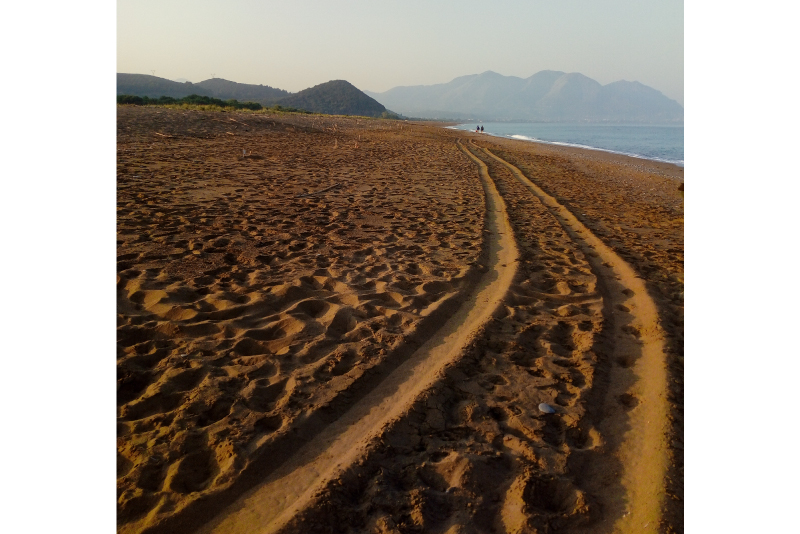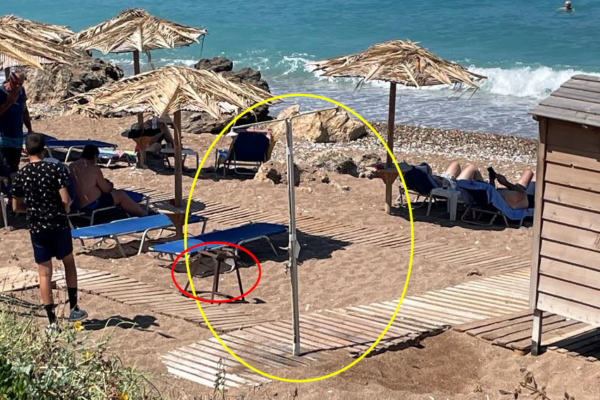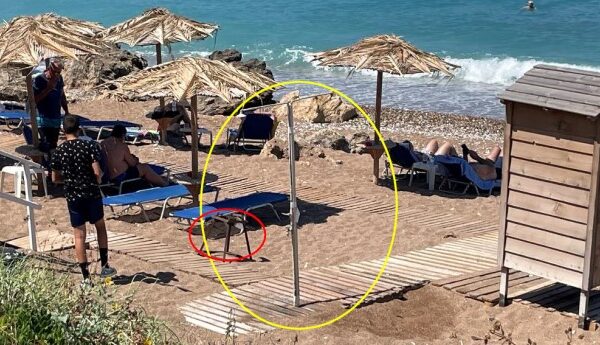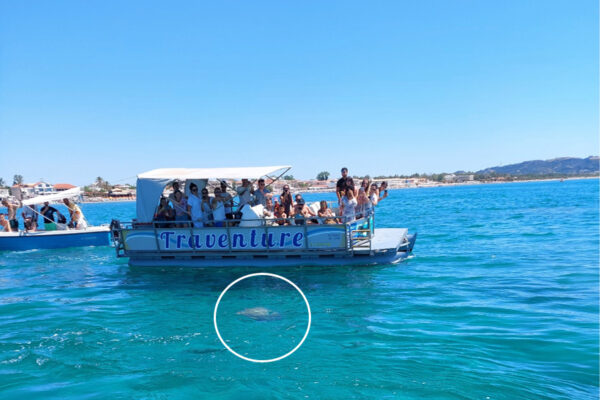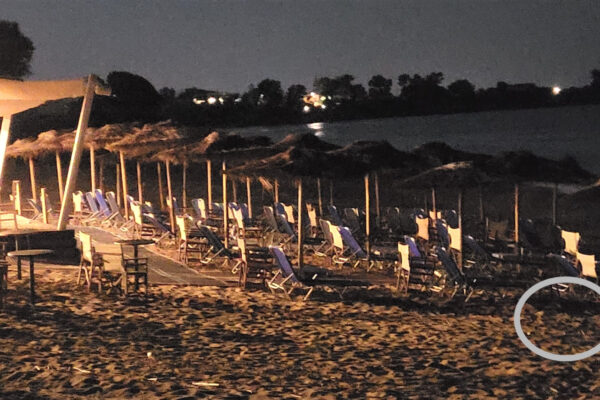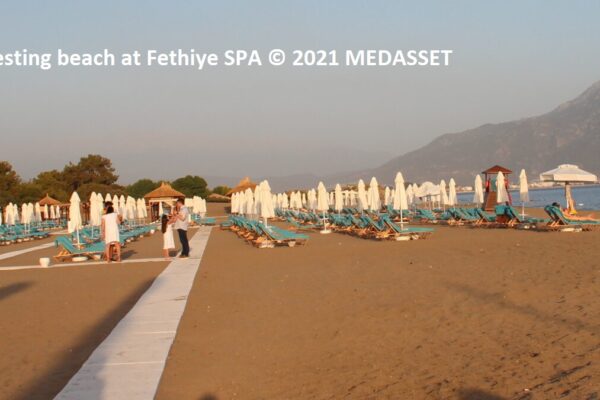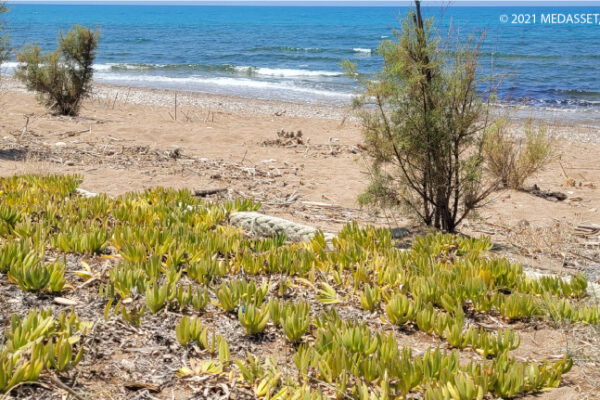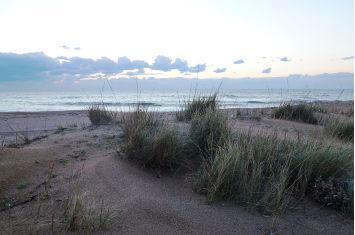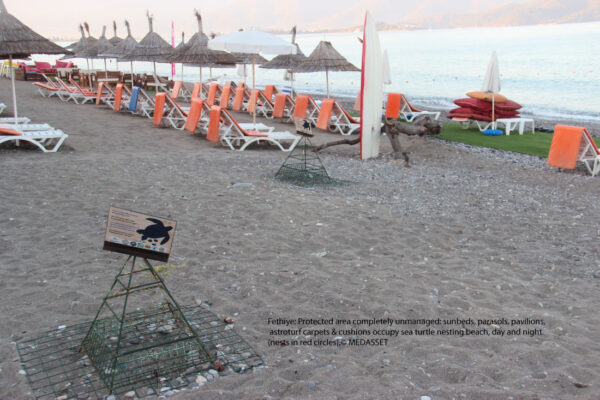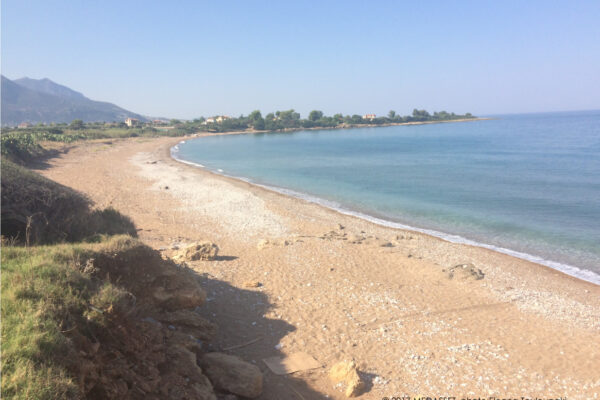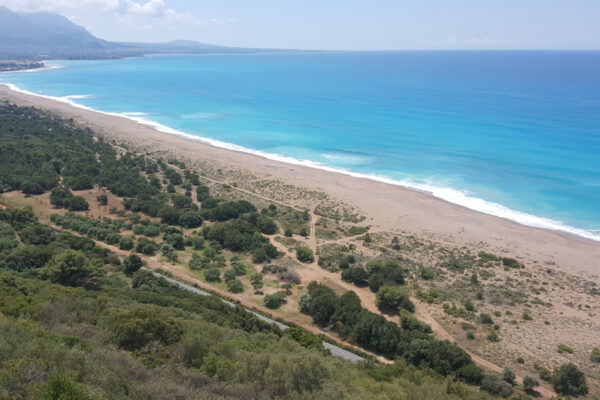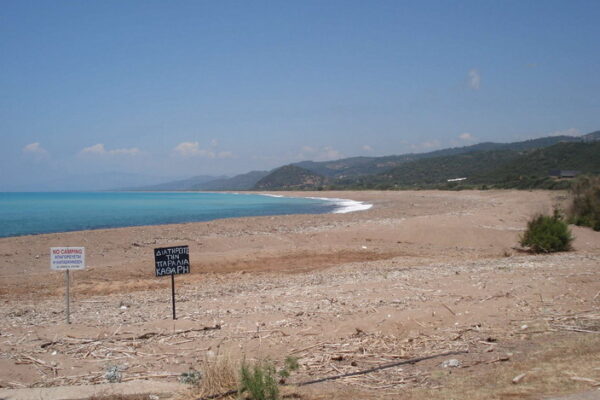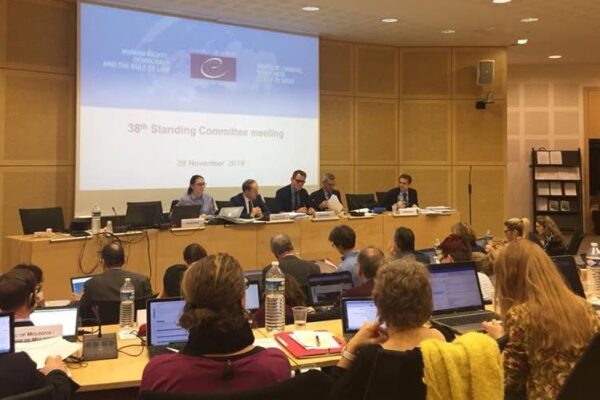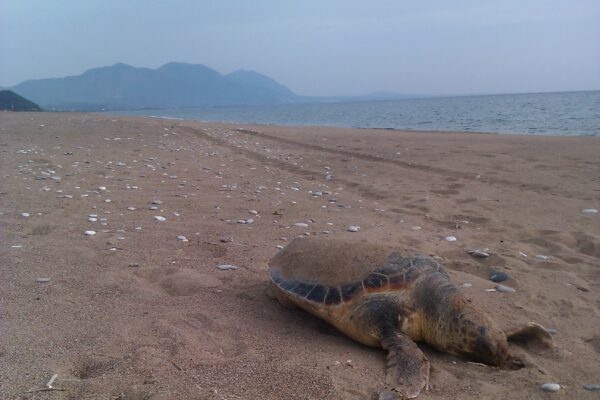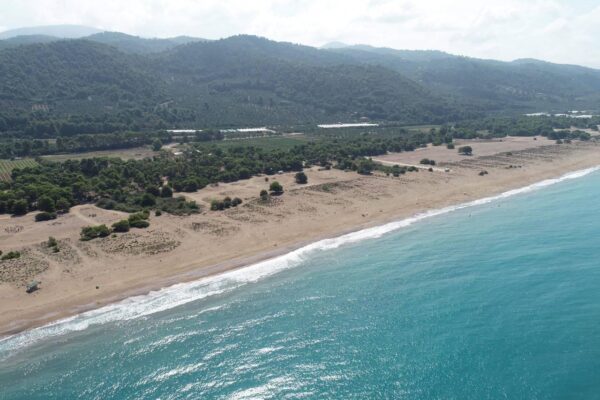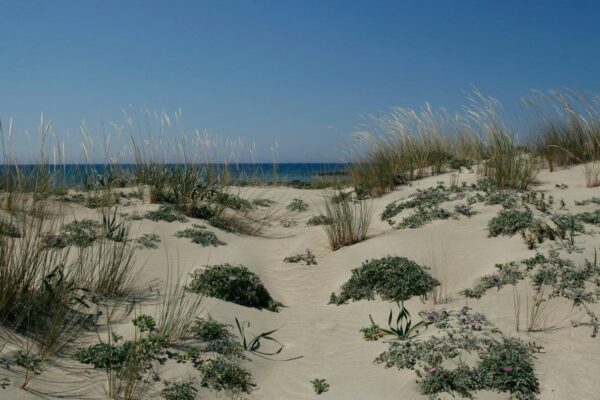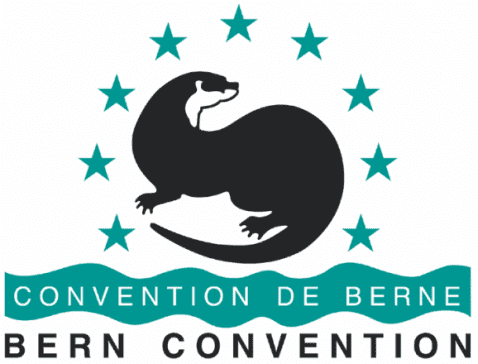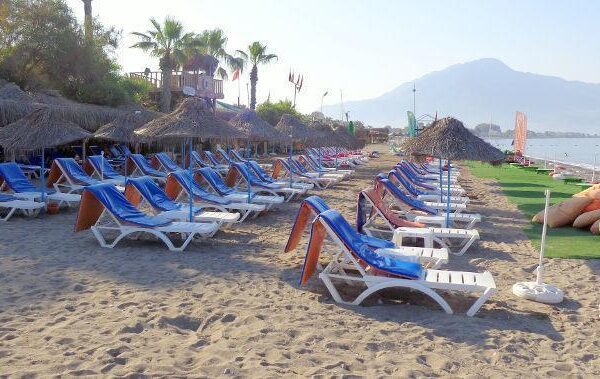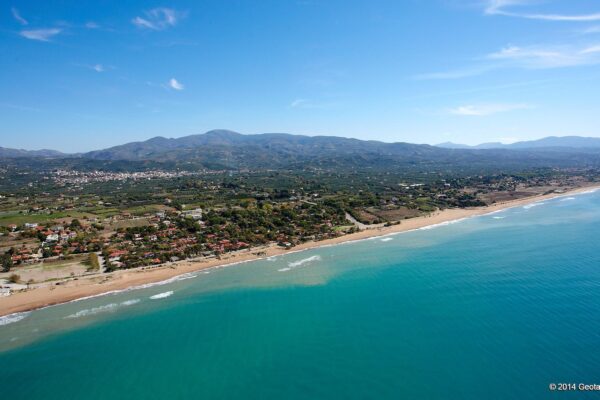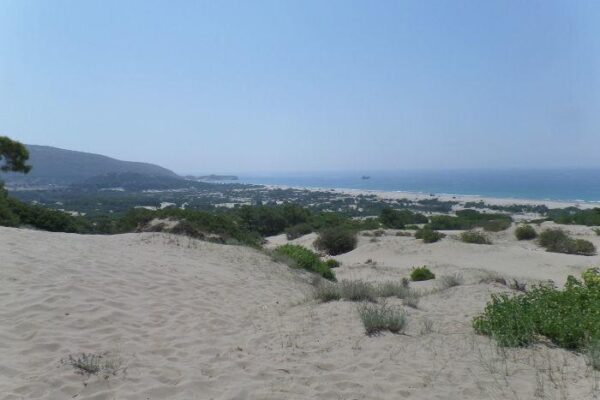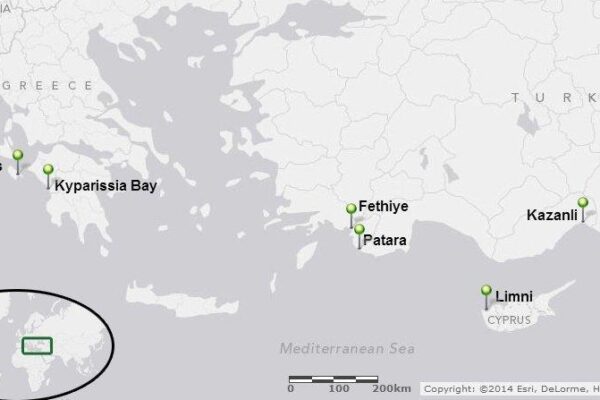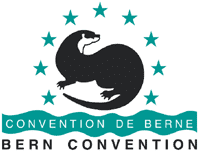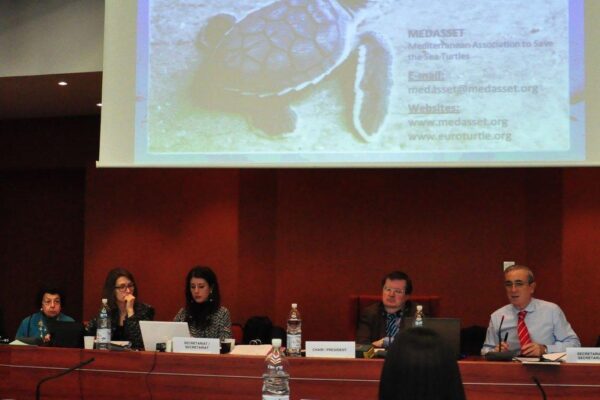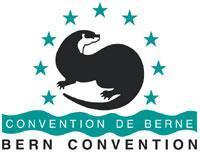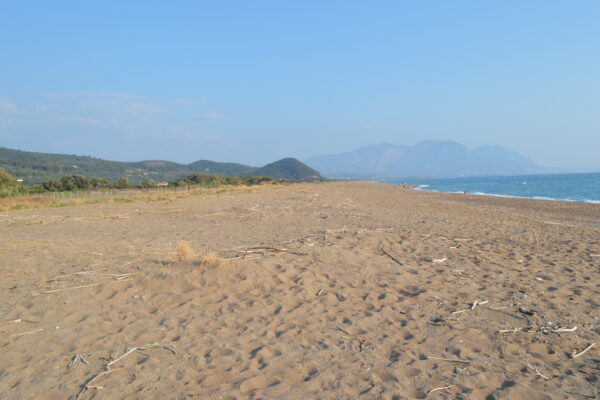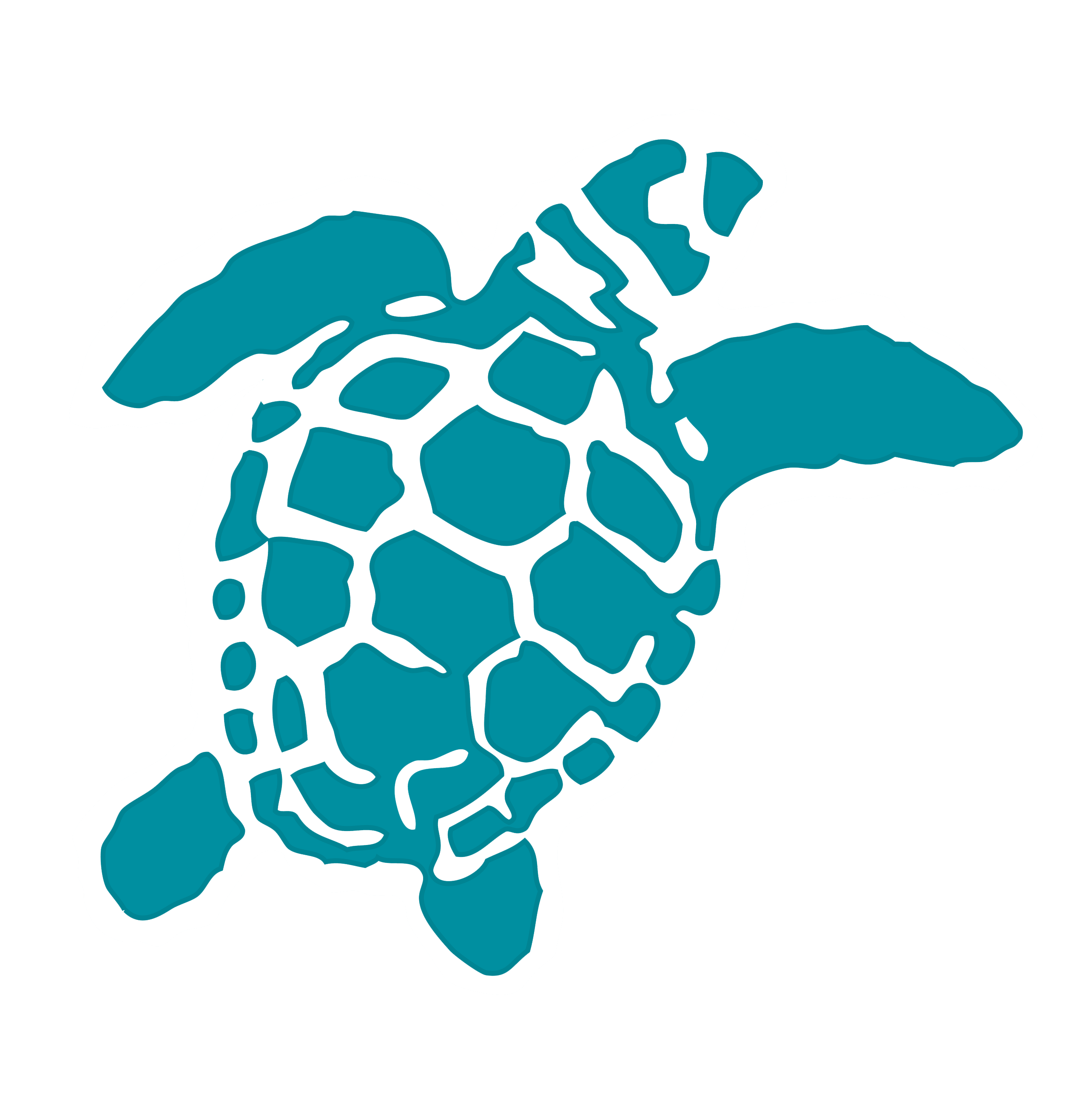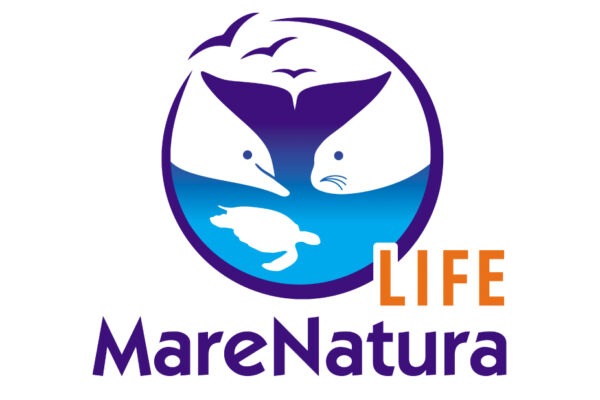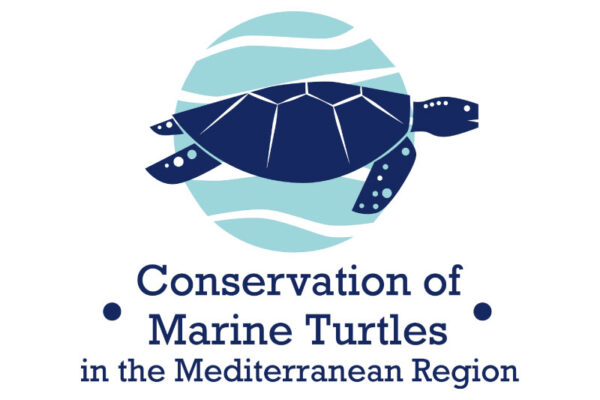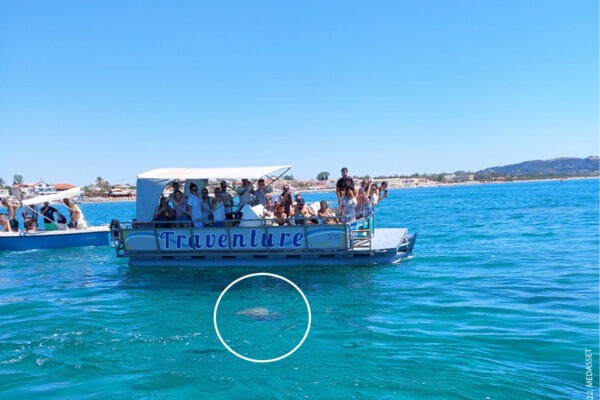Kyparissia Bay is a designated NATURA 2000 site located in Greece, on the Western Peloponnese coastline. It exhibits a high ecological value due to the presence of an extensive dune ecosystem and one of the most significant nesting sites of the Caretta caretta turtle in the Mediterranean Sea, an endangered species as listed in the 92/43/EU Directive, in need of strict protection (annexes II and IV). Approximately 82% of the nesting activity at Kyparissia Bay occurs along a 10km stretch of beach between the estuaries of the rivers Neda and Arkadikos. For reference, there were approximately 1.452 nests in 2013, 1.286 in 2014, 1.472 in 2015, 2.702 in 2016, 2.650 in 2017 and 2.550 in 2018, 2.850 nests in 2019 and over 3800 nests in 2020 (as recorded by ARCHELON)
The threats recorded at Kyparissia Bay were first reported by MEDASSET’s complaint submitted on 22 August 2010, for the 30th Standing Committee Meeting of the Bern Convention. We have been recording the same threats for ten years now, namely, ongoing construction of illegal buildings along the coastline, continued planting and farming of alien species on the nesting beaches and dunes, nearshore fishing, unimpeded vehicular access to the nesting beaches, lack of beach furniture management, and light pollution. Moreover, contracts signed for the exploration and potential extraction of hydrocarbons in the adjacent marine protected areas now constitutes a significant additional threat.
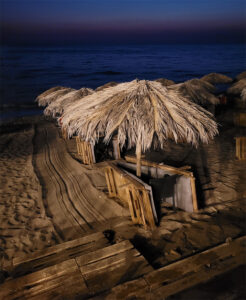
Lack of beach furniture management, light pollution emitted from all the beach bars/restaurants directly behind the nesting area and human alteration of the nesting beach (raking to flatten the sand). Kalo Nero, Kyparissia Bay ©2021 MEDASSET, photo Nadia Andreanidou
Hence, since 2010, MEDASSET in collaboration with ARCHELON, WWF Greece and other environmental NGOs, has been lobbying at regional, EU and national level, in order to establish an adequate legal framework for the protection of Kyparissia Bay and its habitats. Following the annual reports of MEDASSET and ARCHELON, the Standing Committee of the Bern Convention, being aware of the severe pressures on the habitat due to construction interests since 2010, unanimously adopted Recommendation No. 174 at its annual meeting on December 5, 2014, urging Greece to prevent habitat deterioration and ensure improved adequate protection of the Southern Kyparissia Bay. The 2014 Recommendation was issued pursuant to a report and appraisal by an international expert and concerns raised by NGOs (ARCHELON and MEDASSET) relating to the construction of roads, houses and marine structures near the nesting sites, as well as the risks posed by fishing practices, light pollution and human disturbance to the beach during the nesting and hatching season. In total, the Recommendation includes 12 measures for the protection and restoration of the site.
Since the adoption of Recommendation No. 174 in 2014, MEDASSET, in collaboration with ARCHELON, have presented annual reports to the Bern Convention of the continued degradation of the site and its inadequate management. While positive steps have been taken with the adoption of the Presidential Decree (PD) in 2018 (officially in force at February 3rd 2021, following court’s ruling after 7 motions of annulment had been filed against the Presidential Decree, opening the legal proceedings at National level on the 3rd of June 2020) after Greece’s condemnation in the Court of Justice of the European Union in 2016, its enforcement is yet to be fulfilled. Nevertheless, the strict enforcement of the PD as well as the preparation and implementation of a Management Plan, which also considers the local community’s needs and assistance, is of utmost importance.
MEDASSET is closely monitoring the developments, gathering data and taking part in every consultation.



